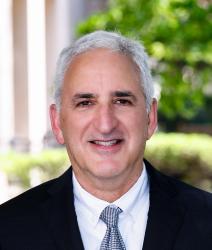2025
How will tax policy evolve in the new administration and new Congress? President-elect Trump proposed a wide variety of tax changes in the presidential campaign including extending and reversing various provisions of the 2017 Tax Cuts and Jobs Act; imposing substantial tariffs; reducing taxes on income from tips, overtime, and social security benefits; adjusting the U.S. taxation of foreign residents; and even floating the idea of eliminating the income tax entirely. To what extent will Congress endorse these and other changes? To what extent can the president enact changes through executive orders?
On Tuesday, November 19, the Urban-Brookings Tax Policy Center convened two panels of experts on the economics and politics of tax changes to examine Trump’s proposals and explore the questions above.
Viewers joined the conversation and asked questions in advance by email to [email protected] or on X/Twitter @BrookingsEcon using #TrumpTaxes.
Agenda
-
November 19
-
Introduction
 William G. Gale Senior Fellow - Economic Studies, The Arjay and Frances Fearing Miller Chair in Federal Economic Policy, Co-Director - Urban-Brookings Tax Policy Center
William G. Gale Senior Fellow - Economic Studies, The Arjay and Frances Fearing Miller Chair in Federal Economic Policy, Co-Director - Urban-Brookings Tax Policy Center -
The economics of Trump's plan
 Elena Patel Nonresident Senior Fellow - Economic Studies, Urban-Brookings Tax Policy Center @elenaspatel
Elena Patel Nonresident Senior Fellow - Economic Studies, Urban-Brookings Tax Policy Center @elenaspatel -
The politics of Trump's plan
 Vanessa Williamson Senior Fellow - Governance Studies, Senior Fellow - Urban-Brookings Tax Policy Center @vanessawilliamson.bsky.social
Vanessa Williamson Senior Fellow - Governance Studies, Senior Fellow - Urban-Brookings Tax Policy Center @vanessawilliamson.bsky.socialModerator
 Tracy Gordon Co-Director and Acting Robert C. Pozen Director - Urban-Brookings Tax Policy Center, Urban Institute @gordontrac
Tracy Gordon Co-Director and Acting Robert C. Pozen Director - Urban-Brookings Tax Policy Center, Urban Institute @gordontrac
-






